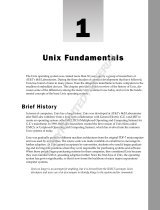
OPEN SOURCE SOFTWARE NOTICE
This document contains open source software notice for the product which includes this file
does not necessarily use all of the third party software components referred to below.
Warranty Disclaimer
THE OPEN SOURCE SOFTWARE IN THIS PRODUCT IS DISTRIBUTED IN THE HOPE THAT IT
WILL BE USEFUL, BUT WITHOUT ANY WARRANTY, WITHOUT EVEN THE IMPLIED
WARRANTY OF MERCHANTABILITY OR FITNESS FOR A PARTICULAR PURPOSE. SEE THE
APPLICABLE LICENSES FOR MORE DETAILS.
Copyright Notice and License Texts
Software(s) using eCos license
=================================================================
*ecos
Copyright is owned by the Free Software Foundation (FSF)
eCos license
-----------------------------------------------------------------
This is the full text of the license as found on files within eCos covered by the eCos license. It
should be read in conjuction with
the GNU General Public License (GPL) on which it depends.
This file is part of eCos, the Embedded Configurable Operating System. Copyright (C) 1998,
1999, 2000, 2001, 2002, 2003, 2004, 2005, 2006,
2007, 2008, 2009 Free Software Foundation, Inc.
eCos is free software; you can redistribute it and/or modify it under the terms of the GNU
General Public License as published by the Free
Software Foundation; either version 2 or (at your option) any later version.
eCos is distributed in the hope that it will be useful, but WITHOUT ANY WARRANTY; without
even the implied warranty of MERCHANTABILITY or
FITNESS FOR A PARTICULAR PURPOSE. See the GNU General Public License for more details.
You should have received a copy of the GNU General Public License along with eCos; if not,
write to the Free Software Foundation, Inc.,
51 Franklin Street, Fifth Floor, Boston, MA 02110-1301, USA.
As a special exception, if other files instantiate templates or use macros or inline functions from
this file, or you compile this file

and link it with other works to produce a work based on this file, this file does not by itself
cause the resulting work to be covered by
the GNU General Public License. However the source code for this file must still be made
available in accordance with section (3) of the
GNU General Public License v2.
This exception does not invalidate any other reasons why a work based on this file might be
covered by the GNU General Public License.
Software(s) using BSD license
=================================================================
* nanopb
Copyright is owned by the Free Software Foundation (FSF)
BSD license
-----------------------------------------------------------------
The BSD license is a class of extremely simple and very liberal licenses for computer software
that was originally developed at the University of California at Berkeley (UCB). It was first used
in 1980 for the Berkeley Source Distribution (BSD), also known as BSD UNIX, an enhanced
version of the original UNIX operating system that was first written in 1969 by Ken Thompson
at Bell Labs.
The only restrictions placed on users of software released under a typical BSD license are that if
they redistribute such software in any form, with or without modification, they must include in
the redistribution (1) the original copyright notice, (2) a list of two simple restrictions and (3) a
disclaimer of liability. These restrictions can be summarized as (1) one should not claim that
they wrote the software if they did not write it and (2) one should not sue the developer if the
software does not function as expected or as desired. Some BSD licenses additionally include a
clause that restricts the use of the name of the project (or the names of its contributors) for
endorsing or promoting derivative works.
The most basic definition of a derivative work is a product that is based on, or incorporates, one
or more already existing works. This can become a complex issue, particularly with regard to
software, but the primary indicator that a software program is a derivative of another program
is if it includes source code from the original program, even if the source code has been
modified, including improving, extending, reordering or translating it into another
programming language.
Source code is the version of software (usually an application program or an operating system)
as it is originally written (i.e., typed into a computer) by a human in plain text (i.e., human
readable alphanumeric characters). Source code can be written in any of hundreds of
programming languages, some of the most popular of which are C, C++ and Java.

Due to the extremely minimal restrictions of BSD-style licenses, software released under such
licenses can be freely modified and used in proprietary (i.e., commercial) software for which the
source code is kept secret.
It is possible for a product to be distributed under a BSD-style license and for some other
license to apply as well. This was, in fact, the case with very early versions of BSD UNIX, which
included both new code written at UCB and code from the original versions of UNIX written at
Bell Labs.
BSD-style licenses have been very successful, and they are now widely used for a variety of
software. Among the many products released under this class of licenses are all of the major
modern descendants of the original BSD UNIX, i.e., FreeBSD, OpenBSD, NetBSD and Darwin (the
foundation of the Mac OS X). BSD-licensed software is also commonly included in Linux
distributions (i.e., versions) and has even been incorporated into some of the Microsoft
Windows operating systems.
-
 1
1
-
 2
2
-
 3
3
Ask a question and I''ll find the answer in the document
Finding information in a document is now easier with AI
Related papers
Other documents
-
HP TippingPoint Next Generation Firewall Series User manual
-
Renesas Stub Generator V.1.00 Datasheet
-
Toshiba DMF82XWU User guide
-
 Wiley 978-0-7645-7994-3 Datasheet
Wiley 978-0-7645-7994-3 Datasheet
-
tekmar 485 Installation guide
-
Watchguard Firebox X Core & Peak e-Series Reference guide
-
Freecom SilverStore 2-Drive NAS User manual
-
Watchguard Firebox X55E-W User manual
-
HP mp3130 Open Source Declaration
-
Olympus X-36 Important information



